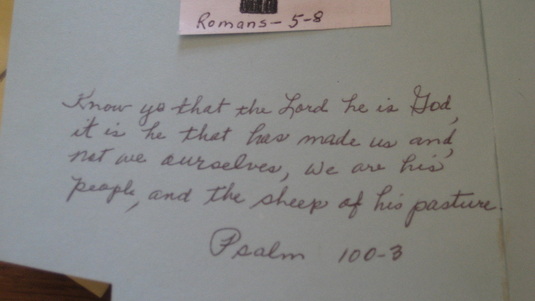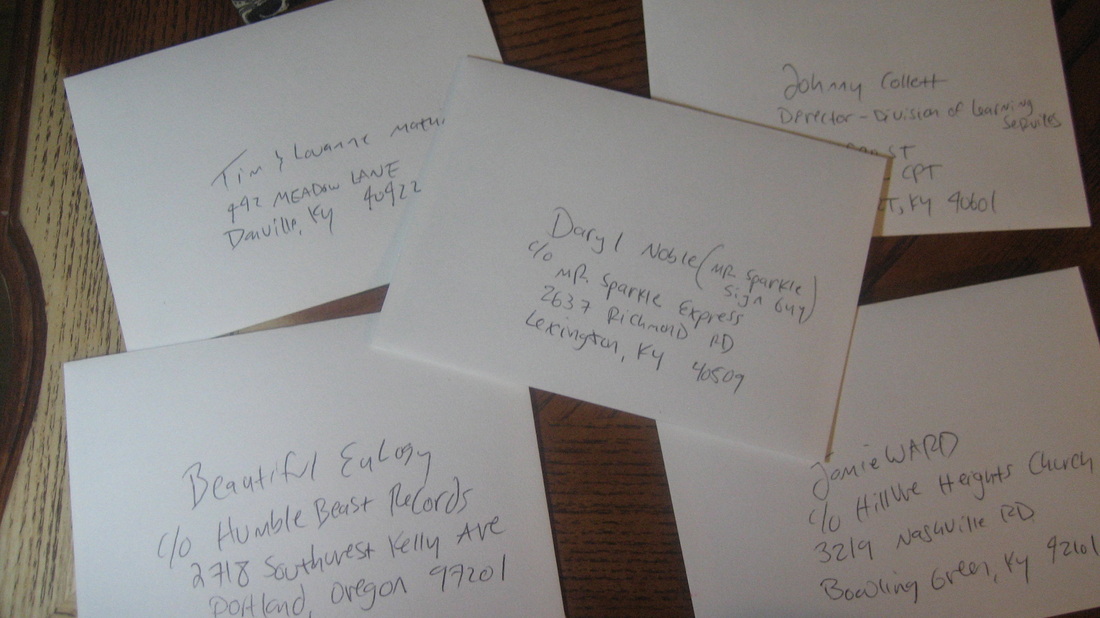On Friday afternoon, I left the comfort and quiet of my home and wife to spend the next two days in the middle-of-nowhere West Virginia… with nearly 40 high school students. These are the teenagers you’ve heard about, the kind that don’t get to bed till after 3:00AM; who don’t realize the sinking of the Titanic was an actual historical event; and who drink enough Red Bull to literally raise the dead.
The special occasion was our high school ministry’s winter retreat, an annual ski trip planned for the weekend after Martin Luther King Day. (On a side note – this was my first time skiing. And it will probably be my last. It’s hard. I quit.) We arrived at the hotel late Friday night, and promptly sent the kids to their rooms. A few hours later, 8:00AM Saturday morning, we left for the slopes, where I spent all day tripping over the long, skinny boards attached to my feet. I felt like a baby deer trying to walk – and failing miserably. We closed out our retreat with a special worship service Sunday morning, one I won’t quickly forget.
I’m the Creative Arts Pastor for Student Ministries at my church (a fancy title for “Praise and Worship Guy”). One of my primary roles is as worship leader for our students – which means I play guitar and sing a lot. Because of my position, I get to spend a lot of time with kids who show an interest in serving God through their musical talents. After spending a few years in this position, I’m getting to the point where the kids are literally growing up in front of my eyes – the once awkward, shy middle schoolers blossoming into intelligent, funny and well-spoken young adults. And one day, these kids might just push me out of my job.
You see, at our Sunday morning service, a band of four students led their peers (and me) in worship. And they did a phenomenal job. They picked their own songs, made their own arrangements, and ran their own practice. I was there to observe, but for all intents and purposes, I wasn’t needed. As I watched them rehearse, my mind raced back a few years. I remembered the bassist and guitarist who, as 8th graders, had more enthusiasm than talent. Back then, their strum patterns were off, the notes late, and sometimes, the guitars even out of tune. And then there were the two vocalists, who as middle school students, sang in a key somewhere just above a whisper. Those days, we counted it a victory just to get them in front of their peers, even if we couldn’t hear them above the guitars. But that was then.
On Sunday morning, those used-to-be-kids looked more like almost-adults, singing and playing without a hint of fear. They believed the words of those songs – that God loves us, and wants to make beautiful things out of our lives – and they shared them boldly. They’ve come so far, and I couldn’t be more proud of them.
In the gospels, Jesus introduces us to the Kingdom of God, a place where the poor are loved, the slaves set free, and repentant sinners valued above the most pious Pharisees. In the Kingdom, what seems a contradiction is, in fact, great theological truth – in order to be forgiven, we must forgive others; to find life we must pick up our cross; to receive, we must first be willing to give.
After His resurrection, Christ gave one last command to His followers: “Wherever you go, make disciples.” A disciple, simply put, is a learner of Jesus who teaches others to be learners of Jesus. The movement of the Kingdom of God is not unlike the spreading of a virus – one cell becomes infected, reproducing viruses that repeat the process with other cells until it covers the entire body. In God’s plan, humans are the viruses, the engines that move His Kingdom throughout creation. There is no plan B. In a world obsessed with speed – 4G Internet, instant streaming movies, no-wait banking – we must come to terms with a very important truth: most things worth doing can’t be achieved instantaneously. And the same is true for making disciples; we cannot fulfill Christ’s final command overnight. Teaching others to be learners of Christ requires intentionality; commitment; time – literally giving your life to others. It means passing on your knowledge, love and faith to those around you. It means letting go of the pride that says you’re irreplaceable, and choosing to replicate yourself, to teach others to do the good work you can do – be that playing an instrument, teaching a class, or growing vegetables. And maybe, just maybe, it means raising up your replacement. Making disciples is dangerous work, but it is the only thing truly worth doing.
Since starting ministry full-time, I’ve made a lot of mistakes – but spending time with those kids, teaching them what little musical skill I had and trying to model the love of Christ, is not one of them. In fact, in many ways, they’ve already surpassed me. I have no doubt, that in the future, they will become better worship leaders than I am now – which means no matter how many songs I sing or youth retreats I help plan, those kids very well may be the greatest gifts I offer the church.
My grandmother has Alzheimer’s disease. It started slow, some forgetfulness here and there, but recently it seems to be on the increase – a bullet train of decline my family is incapable of stopping. Thank God, she still recognizes us – her husband, children, and grandchildren. Sadly, though, she’s reaching a point where most words are losing their meaning. Simple directions (“swallow your pills” or “open your mouth”) are difficult to process; carrying on a conversation is even harder; and writing is almost out of the question.
Like many women who grew up in the early 20th century, my grandmother was a prolific letter writer and card sender – birthday, sympathy, just-thinking-of-you – you name it, she’s sent it. She’s an encourager, a spreader of love – as children, when she would cook breakfast for my brothers and me, she’d always remind us the scrambled eggs were “made with love” – her not-so-secret ingredient. Food’s always been her primary love language. It brought her such joy to fill your plate and then send you back for more – time after time after time. Her next choice, when food was unneeded or unnecessary, was a card. Growing up, I received binders full of beautifully handwritten notes from her, words of encouragement and wisdom in her humble, well-worn cursive. Time seems to have put an end to my grandmother’s handwritten notes, but its powerless to stop her cards. Finding it even difficult to sign her name at times, my mother has stepped in to fill the void, handwriting all my grandmother’s notes and cards in her stead. The torch is being passed.
Yesterday afternoon, I began to discover just how much those cards mean to me. While trying to help my wife organize our new house, I ran across a stack of birthday cards from December 2010. There, in the middle of those long-forgotten well wishes from friends and family, was a handwritten card from my grandmother. She offered birthday blessings and expressed her love – and like every card I’d ever gotten from her, a carefully chosen scripture verse was written on the inside cover. “Know ye that the Lord, He is God,” she wrote, “We are His people, and the sheep of His pasture.” And then it dawned on me: that very well may be the last hand-written card I’ll ever receive from her.
That scripture, an excerpt from Psalm 100, touched my very soul. I read the words again and again, until the tears welling up in my eyes made it impossible to see. Those words, that gentle penmanship, it broke my heart – because life is unfair; because I hate to see what time and sickness have done someone so dear to me; and because, even now, as my grandmother’s disease unmercifully marches forward, those blessed words of scripture are still true.
Our Father, our God, our Shepherd, has called us to Himself – and just like a marriage, for better or worse, He remains our God, and we His people. I hate what this disease has done to my grandmother, and the Good Shepherd knows that – but despite the questions, the heartache, the tears, there is peace, an overwhelming knowledge that, just as the pot does not dictate its purpose or shape to the potter, the sheep do not rule over the shepherd. I admit, at times, it’s been hard to believe – but somewhere deep down, I know that God is good; that despite our broken world, a better one is coming; that we weren’t created to live a life of faithfulness and then have our memories stolen from us – and yet even that cannot rob our God of His goodness.
My grandmother may never again be able to articulate a thought that complex, nor have the ability to write the words of Psalm 100 in her own hand – but I know, even in this state, in the twilight of her life, she continues to believe that the Lord is God; that He is our God; and that we are His people. And that, in some small way, helps me continue to believe – in fact, that’s an appropriate legacy, for that’s what my precious grandmother has always done.
 Early in his writing career, the late-journalist and Kentucky-native Hunter S. Thompson took a novel approach to improving his craft – he sat down at a typewriter and copied other people’s work. He wasn’t plagiarizing; on the contrary, he was learning. Page-by-page he typed, until he’d duplicated the entirety of F. Scott Fitzgerald’s The Great Gatsby. After that, he moved on to Ernest Hemmingway’s A Farewell Arms. He wanted to be able to write a masterpiece, to choose the most precise words and be able to string them together in sentences and paragraphs that would move readers. So he identified authors that did precisely that, and he imitated them… word for word. Who are you imitating? In his first letter to the church at Corinth, the apostle Paul encouraged his readers to “follow [him] as [he] follows Christ.” Children aren’t the only ones who need role models – so who is it that you look up to? Who do you know that lives a profound faith, fearlessly following Christ at all costs? Imitate that person. Do you know someone that ruthlessly loves their family, sacrificing their own good to care for their spouse and to raise their children? Imitate them. Are you friends with a man who incarnates humility, or a woman who’s every thought is one of kindness and gentleness? Imitate those types of people. Find your Paul (or Pauls) and learn from their lives, soaking in their wisdom and imitating their steps – in the process, you just may find yourself walking closer to the Messiah as well. But there is a second (and more dangerous) question we must ask ourselves: is our life worth imitating? Is there anything other believers can learn from watching us live our day-to-day lives? Would it be healthy for a newly-married couple to imitate your marriage? Does your family life offer sound advice to new parents? Would your work ethic be a good influence on students? And most importantly, what does your relationship with Christ teach those who are looking up to (and even imitating) you? The answers to those two questions can be life-changing. But you must excuse me, I’ve got some C.S. Lewis books to start copying.
You're officially invited!
(RSVP's are not required, but they do help the coffee shop prepare!)
I have a confession to make: I’ve never cared much about New Year’s Eve. I realize loads of people anticipate its coming likes it’s the second Christmas, celebrating by getting dressed up, throwing confetti on strangers, and slow dancing to Frank Sinatra songs – but that’s just not me. This year, to celebrate the demise of 2012, my wife and I staged our own Walking Dead marathon. The last episode literally ended at 11:59PM, giving us enough time to stream the ball drop online before heading to bed. Hooray 2013.
Even as a child, I only liked New Year’s Eve because it gave me an excuse to stay up late. How could a day without presents be considered anything worth celebrating? It should come as no surprise, then, that I almost never made New Year’s resolutions growing up. I remember one – in high school I set my mind to reading the entire Bible in a year, a goal that died a slow and painful death somewhere in the icy waters of Leviticus. Until two years ago, yearly resolutions had no place in my story.
I heard recently that 88% of people never achieve their New Year’s resolutions – sometime in the course of the long year, they give up on their dreams. For most of my life, I lived in that silent majority by simply never even bothering to make a resolution – either out of a false self-confidence that told me I needn’t change a thing in my life, or a crippling self-doubt that left me feeling I’d never be able to achieve my goals anyway. But that all changed in January of 2011; prompted by some close friends, I set out to read the entire Bible. Although I didn’t stay on schedule, I managed to finish the entire book before the last hours of that year faded. Nothing’s had such a profound effect on my spiritual life than reading (and beginning to understand) the entire story of God and man. Simply incredible. Propelled by the life-changing success of that resolution, I jumped into 2012 with the goal of trying twelve different month-long challenges, blogging about each one. I dubbed it the “Year of Change,” and did everything from eating a strict vegan diet, to listening to only Christian music, to trying to keep the Old Testament Law. At least in my book, it was, like my Bible-reading goal, an overwhelming success.
Which brings me to 2013. Sure, I’m eleven days late on my resolutions – but hey, at least I haven’t given up on them yet. Instead of twelve month-long challenges, this year I’m choosing to focus on four broader goals, things that can’t be achieved in 30 days or less. These are life-altering resolutions; luckily, I’ve still got 354 days left to chip away at (and blog about) them. In my world, 2013 is the “Year of More,” twelve months devoted to focusing on:
More Mileage
Two years ago, I set my mind to running my first half-marathon (13.1 miles). I achieved that goal in October of that year when I completed the Iron Horse Half-Marathon in Midway, Kentucky. This year, I’m setting my sights on another bucket list item: a full marathon. And I’m totally using it as an excuse to take a sweet vacation as well. My sights are set on October 13th, and the 36th annual Chicago Marathon. I ran six miles today… now if I could only add twenty miles to that, I’d be in good shape.
More Rest
One of my monthly challenges last year was to learn to slow down and rest – and I did okay, but as soon as that month ended, I jumped right back into my brand of break-neck workaholism. No matter how I try to justify it, that is just not the type of lifestyle a child of God should live – and so this year, I’m focusing on embracing the holy idea of Sabbath. Ordained by God on the last day of creation, and fully outlined in the Old Testament law, one of my goals for 2013 is to practice the Sabbath by setting one day a week aside for rest, prayer, and relaxation. God’s given me a gift of 52 snow days this year – my goal is to learn to embrace them.
More Celebration
As a result of my never-slow-down attitude toward life, I find myself always pushing forward, rushing on to the next big thing. Because of this, I seldom slow down long enough to celebrate – and that is a travesty. God has, and is still doing, some amazing things in my life and this year, while learning to rest, I’m also hoping to pick up the long-lost art of celebration. In the past month alone, I’ve managed to achieve two life-long dreams: getting married and having my first book published. These are huge milestones worth celebrating. (Shameless plug: there’s very exciting news about the official release of my book coming in the next few days!) Besides that, 2013 also happens to my 28th year of life – making it my fourth Jubilee. And in 2013, I fully intended to celebrate that, Old Testament style!
More Creativity
There was a lot to love about last year’s monthly challenges, but in the end, they did have one unintended effect – limiting creativity. How many blogs can you write about the mind-numbing state of Christian radio in a month anyway? This year, I’m excited for my blog to once more become a la carte, full of the (sometimes random) thoughts and life lessons I’m learning on a daily basis. To go along with this quest for creativity, I’m also going to strike out into new territory: fiction. I’ve written a few short stories, yet for whatever reason, never published them on my blog. This year, I hope to finally share some of those, as well as some new stories I’ve got up my sleeves. I’ve also got a much longer tale percolating in my head (my next book perhaps?)… and maybe, just maybe, I’ll share some glimpses of that as well before the year ends. All I can know for certain, though, is that in 2013, on this blog, creativity will reign.
2013 – my third year in a row making a New Year’s resolution, and right about now, they’re looking like my most challenging undertakings yet. More mileage. More rest. More celebration. More creativity. Here’s hoping the third time really is a charm – and that on December 31st, I can count myself, once more, among the 12%.
Well, we've proven the Mayans wrong, and the new year's officially been rung in. In my world, 2013 is being dubbed "The Year of More." For now, we'll leave it at that, but check back soon... because everyth You'll want to check back soon, everything's changing!
Challenge: To postpone all writing (blogs, books, etc.) through the month of December.
Why: To encourage rest, and to allow myself to be fully present with, and focused on, my newly married wife.
-----
For the past year, I’ve been part of a discipleship huddle. Every Thursday morning, like clockwork, you’d fine nine of us crowded around a table near the back of Bob Evan’s. It’s no surprise, at least for me, that my time with and commitment to this group have made 2012 a year of significant spiritual growth for me. But for all the lessons I’ve learned, all the times I’ve heard God speak and was able to respond in obedience, there’s yet one spiritual discipline that perpetually eludes me, one that I find exceedingly difficult to practice, let alone master: the art of rest.
I grew up in a home where the Sabbath – a weekly, intentional day of rest – was embraced and practiced. Our family rarely went out to eat on Sundays, and we never shopped. Instead, after the church service, we’d head home for lunch together. After that, my mother and father would find ways to rest – taking a nap, listening to a record, flipping through the newspaper or a book. My brothers and I, during the summer months, would head outside to play baseball or football; during the winter, we’d flip on videogames or watch a movie. Sunday was set apart as a day to unwind; to sleep; to enjoy each other’s company.
And then, I grew up.
In high school, my advanced and college-level classes heaped homework so high that it made a full day of rest the exception rather than the norm. This was even more true at the University of Kentucky, where I loaded up a twenty, and then a nineteen-hour semester, back-to-back as a freshman. It’s no wonder, after completing that first year of college, that I was experiencing major school fatigue. In a word, I was burned out. But school doesn’t slow down just because you’re tired, and I found a way to keep pushing through – catching cat naps in the library, living on a steady stream of caffeine, and taking no days off. After college, I started a full-time job as a high school science teacher – and suddenly my life as a student seemed carefree. Determined to be a high caliber educator, I spent nearly every waking moment creating lessons, grading papers, and attending school functions. I would often take naps during my planning period, and a few times, even feel asleep at night with my hands on the home keys of my laptop. My lifestyle was becoming exceedingly unsustainable – and after two nonstop years in the classroom, I chose not to renew my contract. I’d burned myself out again.
A year and a half ago, I started work at my church as one of the youth ministers. Having learned nothing, it seemed, from my time as a high school teacher and a college student, I jumped right into this new position with both feet. I started work on a tear, logging 30 – 35 hour weeks, despite the fact that I was only expected to put in (and only getting paid for) twenty hours. It didn’t take long for my boss to catch on. One afternoon, about a month into my new job, he walked into my office and told me to go home. “You’re working too much,” he said, “we can’t have you burn out.” I begrudgingly packed my things and headed home – where I proceeded to sit down on the couch and get right back to work. Sometimes, to quote Lucy, I can be a real blockhead.
Through this year’s discipleship huddle, and the tough love of the other men involved, I’ve come to a stark realization – that my propensity for workaholism is actually a function of my identity. You see, I grew up learning that God loved me; yet somewhere along the line, I decided that if the Almighty was going to bless me with His good graces, I’d better do what I could to make it worth His while. In a word, I wanted to earn His favor; I wanted to be worth His love. When I looked in the mirror, I didn’t recognize the face of God’s beloved son; instead, I only saw my faults, my shortcomings, and so I scrunched up my brow to do better in the future. I was determined to put in the hard work I thought was required to climb God’s corporate ladder, to earn my spot as one of His favored children. And so I set myself to excelling – in academics, in work, through volunteering, on mission trips and with inner-city ministries. Don’t get me wrong, each of those things is great – but they could never earn me (or you) God’s merit. Work, even justice-driven, life-changing work, for all the good it does in the world, falls short of defining us – what we do will never be able answer the three basic questions of human life: who am I; why am I here; am I loved?
Thankfully, humanity doesn’t have to face the weight of those existential questions alone – but finding their answers may be challenging, since they won’t be hidden in the buzz of our workday, the low hum of our computer, or the sleep-dispelling light of our iPhone. There is only One who can answer those questions for us – and the psalms teach us that, in order to know Him, we must be still. Until we stop the manic pace at which we live, set aside the constant stream of distracting entertainment, and recognize that our worth is not derived from our usefulness, we will never learn who (and whose) we are.
Not surprisingly, the Father doesn’t leave the answers to such important questions – who am I; why am I here; am I loved? – to mere chance. I’m prone to believe their embedded all around us – in a beautiful sunset, the first snowfall of the winter, the laugh of a dear friend – but even if we miss those cues, He took time to spell them out in black and white. Who am I? Genesis 1:27 teaches that I’m made in God’s own image; 2 Corinthians 5:17 says I’m a new creation, the old way of living having passed on; 1 John 3 says I’m a child of God; even Jesus Himself, in Luke chapter 8, claims that those who are obedient to God are His brothers. Who am I? A child of the Most High.
Why am I here? Psalm 139 says I’m not an accident, that God Himself knit me together in my mother’s womb. 2 Timothy 2:21 teaches that I’m an instrument, set apart for God’s special purposes, holy and useful to the Master. In chapter two of Paul’s letter to the church at Ephesus, he explains that believers are God’s masterpiece, created to do the good works that God has prepared in advance for us to do. In Matthew 28, before His ascension to heaven, Christ says that we’ve been set here on earth to make disciples, to baptize and teach them to obey everything He commanded. Why am I here? To proclaim, just as Christ did, that the Kingdom of God has come to earth.
Am I loved? The Old Testament prophet Zephaniah proclaimed that God rejoices over His children with gladness and loud singing. The Psalms teach that God is merciful and gracious, patient and abounding in steadfast love and faithfulness. Jeremiah 29:11 shows that God, in His love, has made plans for our lives that are meant for our welfare, to give us hope. Christ himself, in perhaps the most quoted verse of all time, explains that God loved the world to such a degree that He sent Him as a representative, with the power and authority to bring life to all of humanity. Am I loved? To a degree that no human mind could ever comprehend.
With so many verses (and the myriad more I didn’t take time to reference) offering answers to life’s most important questions, how could it be that I – a preacher’s kid, working at a church – could ever be confused about his identity, could ever question who he is, why he’s here, and doubt that he’s loved? I’m convinced, strangely enough, that it has something to do with my baby-like refusal to rest. At the very beginning of the Bible, God introduces the concept of a Sabbath, a weekly time of rest designed as a day of remembrance. Rest has always been a concrete way to demonstrate our faith in the Creator – by stopping our work, we show God that we trust Him to provide. And without work occupying our attention, we find time to turn our thoughts to the Father; to reengage with the identity that He is singing over us; to read and believe His words once more. When we refuse to slow down, to spend time with Him, to engage in His rest, then its only natural that we begin to lose ourselves, to forget the identity that Christ died to give us. He is singing over us, calling us His beloved sons and daughters, and yet for many of us, myself included, the noise of our lives drowns out that song.
In January of this year, I relaunched my blog by engaging in a little experiment I called A Year of Change. The idea was simple – instead of picking one New Year’s resolution to wrestle with for the entire year, I’d choose twelve different, month-long challenges and blog about my experiences. I started with Jesus-Music January (a month of nothing but Christian music) and along the way experimented with veganism, following the Old Testament laws, and most recently, writing a month’s worth of thank-you notes. Over the course of the year, I wrote 114 blogs – which averages out to about two a week. Personally, I’m stunned by that number – I had no idea I’d written that much. That statistic, while highlighting one of my greatest strengths, also screams of my most profound weakness – self-motivation. For whatever reason, I’m an extremely self-motivated individual; If I set out to do something, you can bet I’ll get it done (which is probably why I enjoy distance running, but that’s a blog for another day). That self-motivation, however, can be blinding at times. My mind always seems to be in the “on-to-the-next-thing” mode, never slowing down enough to enjoy the present. After each blog I posted this year, all 114 of them, my mind always raced to the exact same thought: what will I write about next? It’s almost a sickness, and something that must be changed.
And so enters the last challenge of my Year of Change. For the remainder of this month (and year), I will not be writing. Don’t worry, I haven’t given up the craft of putting together words entirely – think of this more like a “fast” than a “diet.” The reason for this is two-fold. First, December is probably the craziest month of the entire year – we sing about silent nights, but our lives are quite the opposite. I’ve already spent untold hours running from store to store, buying Christmas presents, attending parties, and trying to make it to every family event… and we still have seventeen more days till Christmas. In all the hustle and bustle, its so easy to forget what this season is really about – the birth of the Messiah, the Word that became flesh. I hope that, by choosing not to write, I can find more time to dwell on the significance of the event I’ll be celebrating on December 25th.
The second reason, I’ll admit, is a bit more selfish. In a week, I’ll be married to a beautiful, patient, and hard-working young woman. The next seven days, leading up to the wedding, are sure to be some of the most exciting, and stressful, of my young life. And then, in the span of a few short hours, the event we’ve been planning for over a year will be complete, and we’ll head out on our honeymoon as Mr. and Mrs. Mathis. For me, the temptation will be to continue working, to allow my mind to dream up another big project for us to immediately undertake together. But that’s not God’s plan. In fact, part of the Old Testament law, found in Deuteronomy 24:5, mandates that a man, after getting married, is to take an entire year off from work. The new husband’s focus is to be on learning to live with, and love, his wife. Unfortunately, I won’t be able to skip out on work for the duration of 2013 – but I can close the computer for the rest of this month, choosing to instead give the time I’d normally spend writing to my wife. She’s wonderfully supportive of my dream of being a writer, but of all the wedding presents we’ll get, I have a feeling this one just may well be her favorite. But I’ll be honest, of all the challenges I’ve undertaken this year, choosing not to write may be the most difficult to complete. But I’m up for the challenge – you know, that whole self-motivated thing.
So that’s it. The rest of December, at least for this blog, will be a string of silent nights. But check back in 2013, because big things are coming down the pipe – including the publication of my first book (!!!!!), and a few ideas I’m tossing around my head for 2013.
But before I sign off, I must take a moment to offer a huge THANK YOU to everyone who’s taken time to read this year. Each of you, in your own way, have contributed to my dream of being a writer – and that is not something I take lightly. I sincerely appreciate all the support and encouragement I’ve received from you. Its my humblest prayer that something you’ve read on this site has, in some small way, been able to repay you for all the love and encouragement you’ve shown me.
Merry Christmas, Happy New Year… and I’ll see you in 2013!
2012 holds one last challenge for me - and boy, will it be a doozy. First blog coming soon!
“But thou art holy,
O thou that inhabitest the praises of Israel.”
_ Psalm 22:3
November’s challenge was simple – the month most commonly associated with gratitude and thanks would be the perfect time to practice the long-lost art of the thank-you card. My goal was to handwrite thirty notes – roughly one a day (although it never worked out that way) – each one a chance to encourage and thank someone else for the influence they’ve had on my life. I’ve written to pastors and authors, radio stations and bands, bosses and friends… and even one dead guy.
In Psalm 22, David writes that God inhabits – He lives within – the praises of His people. Who can argue that gratitude is truly a taste of the divine? As I’ve gone about this month, specifically focused on being thankful for all the blessings the Father has bestowed, I’ve found myself drawn nearer to His heart – it seems an unconscious consequence of gratefulness.
We may give it brief airtime before we carve the turkey, but we don’t live in a thankful world. American culture is built on a bedrock of pride; the way our friends and neighbors perceive us is point number one – and so we’ve learned to embrace the false gospel of getting – we work overtime, max out credit cards, and take out loans to have the nicest car, the biggest house, the slickest phone, the hottest wife. We’re not only keeping up with the Joneses, but with the Smiths, Clarkes, Browns… and the entire rest of the block as well. All the while, outside our shrink-wrapped lives, a homeless rabbi is calling us to join a kingdom that is truly countercultural – instead of getting, he teaches us to give; instead of wanting more, he instructs us to turn our hearts toward thankfulness.
If anything, this month taught me that I’ve misunderstood the blessing of God. The preachers on TV talk about it in terms of rising bank accounts and summer homes, health and wealth, but that’s not the whole picture. Can God give us those things? Absolutely. And yet, although I’ve prayed for God’s blessing on my life, I still have to check my bank account before I go grocery shopping to make sure I don’t spend more than I have. Is God’s blessing passing me by? Have I been weighed and found lacking in His sight? The Father isn’t ignoring my prayers – instead, He’s answering them in the most valuable way possible – with other people. I may be scrimping and saving every dime, but my loving Father has poured out more wealth on me than I ever thought possible – with friends and family that support, encourage, and cherish me and my faith.
To close out this month’s challenge, I’m writing thank-you notes to encourage five people who’ve done the same for me throughout my life – people I’m sure I’ve never appropriately thanked before. First, my parents, Tim and Louanne Mathis, who, more than anyone else, have prepared me for the adventure of marriage I’ll be undertaking in just fifteen short days. Another letter goes out to Jamie Ward, my middle and high school youth minister – as a stuttering sixth grader, he looked me in the eye and told me I’d be a leader in the church. He believed in me, and today, I find myself waist deep in vocational ministry with a youth group of my own. My third letter is going to Johnny Collett, a friend from my days as a high school science teacher. When I was on the fence about leaving education and pursuing ministry fulltime, he offered words of insight and encouragement that propelled me forward. Like my youth minister years earlier, Johnny believed in me… and that helped me believe in myself and the calling God had placed on my life. My final two letters go to people I’ve never met, but whose lifestyle inspires me everyday: the hardworking and enthusiastic Mr. Sparkle Car Wash Sign Guy (his real name’s Daryl) and the Christian hip-hop group Beautiful Eulogy. Everything about both of them screams humility and genuineness – and while coming from very different worlds, they both manage to offer me daily inspiration.
And while those five letters bring me to the end of November’s Thirty Days of Thanksgiving, I certainly don’t expect them to signal the end of my attempts to embrace a lifestyle of gratitude.
But before I move on to anything else (like December’s challenge), I’ve got to find my stamps.
Today, I celebrate the four men who, in exactly sixteen days, will be standing beside me when I undertake one of the biggest adventures this life has to offer – marriage. Technically, only two of my four groomsmen are my brothers, but the way I feel about these guys blurs those lines significantly. Without a shadow of a doubt, I wouldn’t be the man I am today without their godly influence, their belief in me, and their never-ending support. The birth certificates may say different, but I consider myself blessed enough to have four brothers in this life. And like every member of my family, they’ve all got their own nicknames – Lips, Goaf, Bode and Sherm – and I’m not even going to try to explain those here.
On December 14th, the night before my wedding, each one of these men will receive a gift bag from me. Its nowhere valuable enough to be able to truly represent what they mean to me and Janie, but tucked inside each one will be a heartfelt note – the only way a writer can truly thank the people most important to him.
(Just in case you’re keeping score at home – no, I did not make a math mistake. I have four groomsmen, but am only counting three thank-you notes toward my month’s goal because, a few days ago, I wrote a note to one of my groomsmen for his help in getting my book published. The rules of this month’s challenge specify only one note per person… and you can ask Janie, I’m a stickler for the rules.)
One day left in November and five notes to go – its back to the writing desk for me.
|








 RSS Feed
RSS Feed